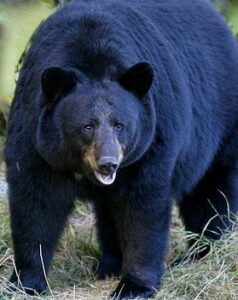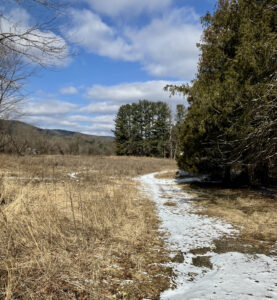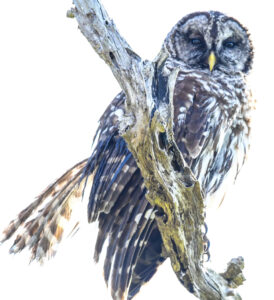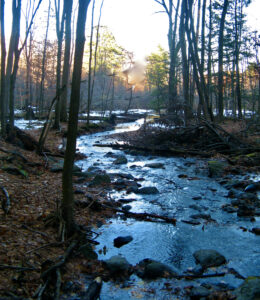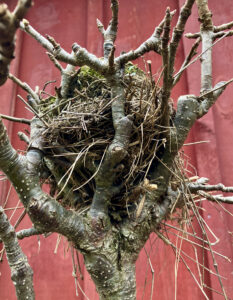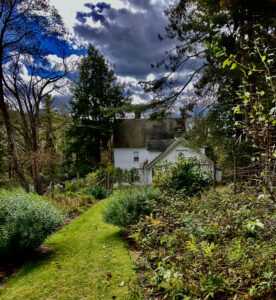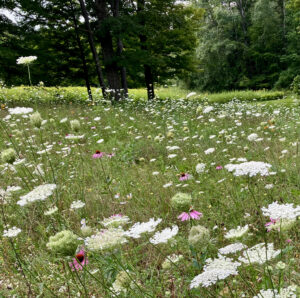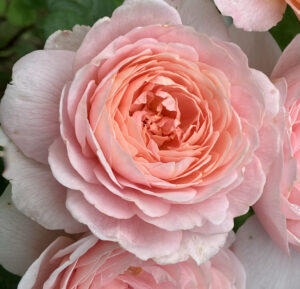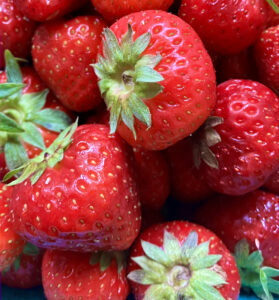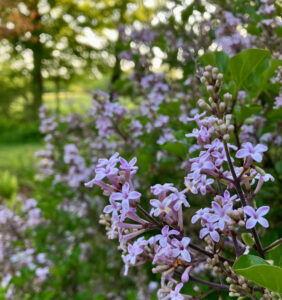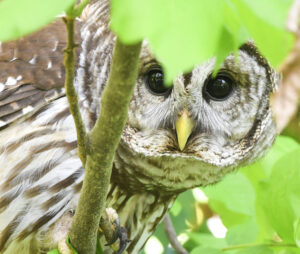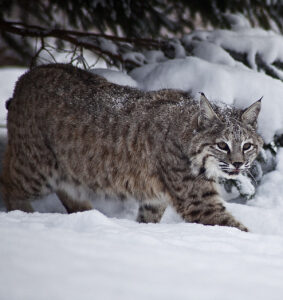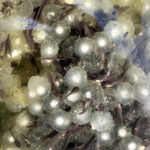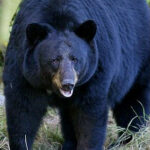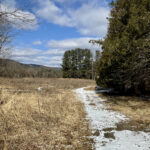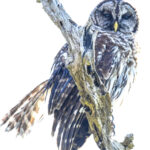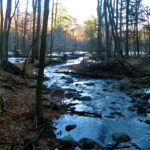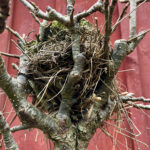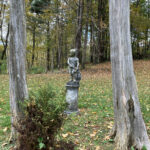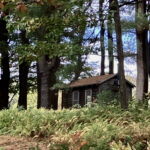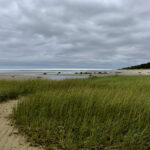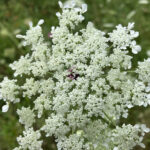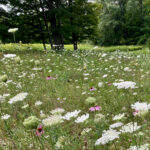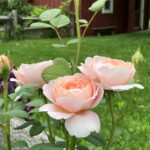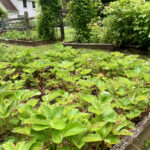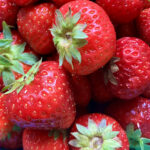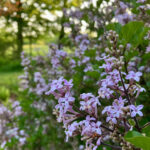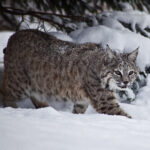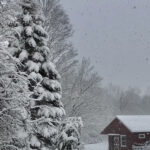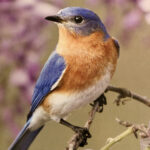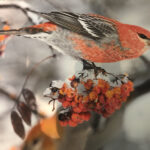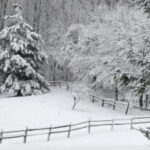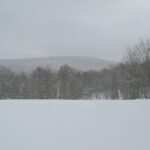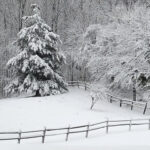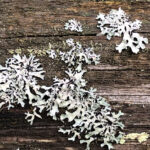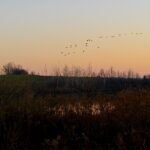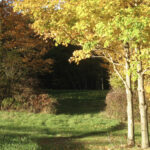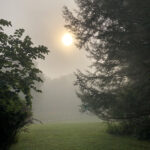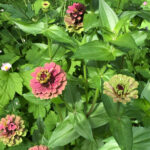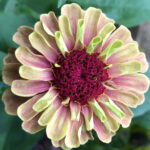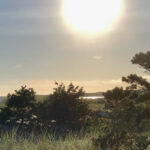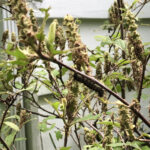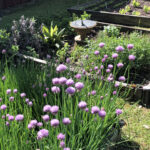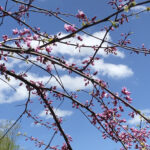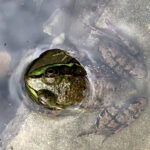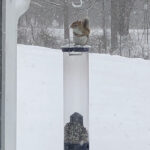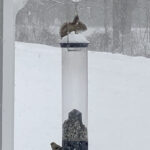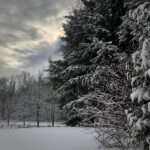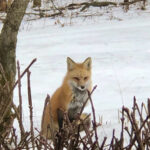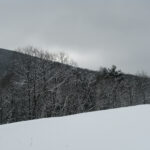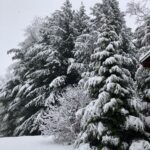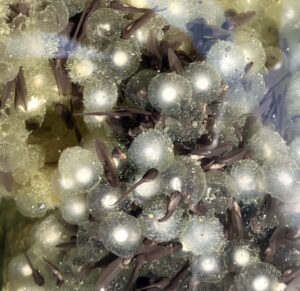 Up close, they look like loosely scattered pearls or bubbles popping in a glass of champagne. Take a few steps back, and they resemble clusters of far-off galaxies, glistening in the dark. I came upon them the other morning on the northwest corner of our frog pond, right where our Field Guide to the Animals of Vernal Pools said that wood frogs prefer to lay their eggs. Look closely at the photograph and you’ll see tiny dark brown tadpoles, grazing on the symbiotic algae that colonizes the egg masses after the larvae hatch. By June, the frogs will have developed legs and started hopping off into the uplands, only to return to the pond late next winter to begin the cycle all over again.
Up close, they look like loosely scattered pearls or bubbles popping in a glass of champagne. Take a few steps back, and they resemble clusters of far-off galaxies, glistening in the dark. I came upon them the other morning on the northwest corner of our frog pond, right where our Field Guide to the Animals of Vernal Pools said that wood frogs prefer to lay their eggs. Look closely at the photograph and you’ll see tiny dark brown tadpoles, grazing on the symbiotic algae that colonizes the egg masses after the larvae hatch. By June, the frogs will have developed legs and started hopping off into the uplands, only to return to the pond late next winter to begin the cycle all over again.
The miracle of Spring is at its most vivid this time of year, when the sun can be unforgiving, and the air still has a bite. Against a dull backdrop of flattened fields and leafless trees, it’s easy to spot the cardinals and phoebes setting up house, the turtle half-way across the road, heading to its breeding grounds. But laid bare, too, is nature’s random violence: the pile of feathers and bones leftover from a raptor’s meal.
Despite being chosen as the month to celebrate poetry, April has always been problematic for poets. T.S. Eliot famously called it the “cruelest month.” Edna St. Vincent Millay wrote that it “comes like an idiot, babbling and strewing flowers.” Here’s a poem on the subject by the American poet Alicia Ostriker, one of her seemingly offhanded meditations that is packed with purposeful delights.
April
by Alicia Ostriker
The optimists among us
taking heart because it is spring
skip along
attending their meetings
signing their e-mail petitions
marching with their satiric signs
singing their we shall overcome songs
posting their pungent twitters and blogs
believing in a better world
for no good reason
I envy them
said the old woman
The seasons go round they
go round and around
said the tulip
dancing among her friends
in their brown bed in the sun
in the April breeze
under a maple canopy
that was also dancing
only with greater motions
casting greater shadows
and the grass
hardly stirring
What a concerto
of good stinks said the dog
trotting along Riverside Drive
in the early spring afternoon
sniffing this way and that
how gratifying the cellos of the river
the tubas of the traffic
the trombones
of the leafing elms with the legato
of my rivals’ piss at their feet
and the leftover meat and grease
singing along in all the wastebaskets

